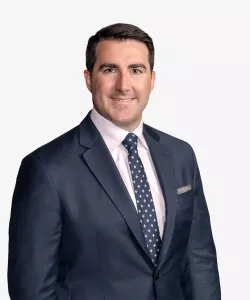Friday Enforcement Wrap: Medicare Fraud Lands Patient Recruiter in Jail & More Top Headlines
Headlines that Matter for Companies and Executives in Regulated Industries
DOJ News
Medicare Fraud Lands Patient Recruiter in Jail
On October 4, 2018, a patient recruiter in Texas was sentenced to 108 months in prison for her role in a large Medicare fraud scheme totaling $3.6 million. Prosecutors proved at trial that the recruiter and her co-conspirators used a home health care company called Texas Tender Care to submit Medicare claims for home health services that were not medically necessary or, in some cases, were not even provided.
The recruiter also paid beneficiaries, doctors, physical therapy companies, and others to prepare the paperwork needed to facilitate the fraud. As part of an effort to cover up the fraud, the recruiter sought to make it appear that she was being paid hourly as a marketing representative. The case stemmed from the work of a Medicare Fraud Strike Force and was supervised by the Department of Justice’s Criminal Division Fraud Section and the US Attorney’s Office for the Southern District of Texas. Read the DOJ press release.
Federal Jury Convicts Hospital Administrator
A federal jury recently convicted a hospital administrator in Houston, Texas, for his role in a $16 million Medicare fraud scheme. The administrator participated in a conspiracy to submit false and fraudulent claims for an outpatient partial hospitalization program (PHP), in which the administrator and his co-conspirators paid illegal bribes and kickbacks to the owners of group homes and to patient recruiters and, exchange, those individuals sent Medicare patients to the PHP facilities.
The bribes and kickbacks were masked as transportation payments and salary payments when in fact they were payments in exchange for referrals, in violation of the federal Anti-Kickback Statute. Sentencing in the matter is scheduled for early 2019. Read the DOJ press release.
Pharmacy Owner Pleads Guilty to Medicare Fraud
A pharmacy owner in Miami, Florida pleaded guilty for his participation in a Medicare fraud scheme involving prescription drugs and $8.4 million in fraudulent billings. He admitted in connection with his guilty plea that he agreed to pay illegal kickbacks to Medicare beneficiaries in exchange for their promises to use his pharmacy to fill their prescriptions. The beneficiaries also agreed to allow the pharmacy to submit claims to Medicare for prescription medications that the pharmacy never actually purchased and were never actually provided. As part of the plea, the owner forfeited a property located in Miami Beach, Florida and several bank accounts used for the fraudulent scheme. Read the DOJ press release.
Durable Medical Equipment Company Owners Sentenced in Kickback Scheme
A US District Judge in Fort Myers, Florida recently sentenced two owners of a durable medical equipment company following their guilty pleas in connection with a conspiracy to pay illegal kickbacks to a local doctor in exchange for referrals. The owners received prison sentences of one year and nine months and are subject to money judgments of approximately $1.5 million and $800,000, representing the fruits of the fraudulent scheme. The doctor also pleaded guilty and is awaiting sentencing. Read the DOJ press release.
Litigation Developments
United States v. Fluor Corp
A qui tam complaint filed by a former Fluor Corporation employee was unsealed last week. In the complaint, the relator alleges that Fluor violated the False Claims Act by failing to properly notify the government in a timely and accurate manner regarding the loss or theft of government property for which Fluor was responsible. The relator alleges that employees submitted reports to the government regarding loss, theft, or damage to property that were incomplete or inaccurate as part of an alleged scheme to avoid liability for the property.
These actions allegedly resulted in more than $100 million worth of “unaccounted-for government property in Afghanistan.” Fluor contracted with the US Department of Defense to provide logistics support to the US Army and coalition forces. The complaint was unsealed after the federal government declined to intervene. The case is United States v. Fluor Corp., Case No. 6:18-cv-01000, and was filed in the US District Court for the District of South Carolina.
HHS-OIG News
OIG Unveils Fraud Risk Indicator
The Office of the Inspector General for the Department of Health and Human Services recently released a new tool called the “Fraud Risk Indicator,” designed to provide an assessment of parties that resolve False Claims Act cases through settlement.
The OIG will use information it develops during an FCA case to assess the future trustworthiness of the settling parties in deciding whether to exclude a party from the Federal healthcare programs or take other action. According to the website, “OIG bases its assessment on the information OIG has reviewed in the context of the resolved FCA case and does not reflect a comprehensive review of the party.”
Additionally, the OIG notes that because the information may be relevant to various stakeholders, OIG publicizes its findings about where a defendant falls on the risk spectrum. The risk categories are as follows: Lower Risk – No Further Action, Low Risk – Self Disclosure, Medium Risk – Corporate Integrity Agreement, High Risk – Heightened Scrutiny, and Highest Risk – Exclusion.
The OIG’s “Fraud Risk Indicator” website can be viewed here. The detailed criteria for the relevant risk factors comes from an OIG guidance document that can be viewed here.
Contacts
- Related Industries
- Related Practices
-
Read Time
4Minutes




